1 of 10
Download to read offline
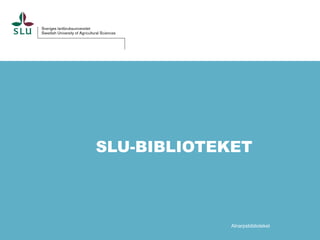
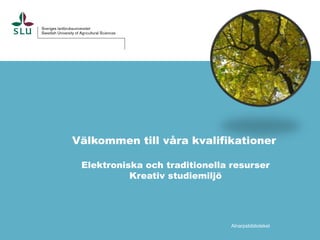
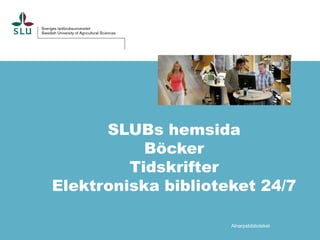
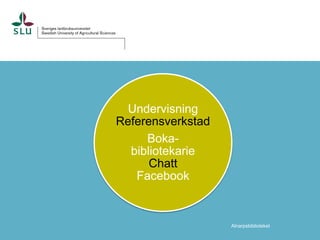
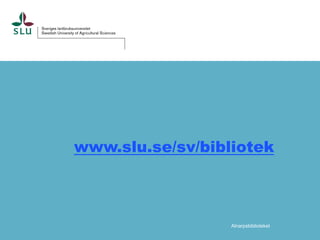
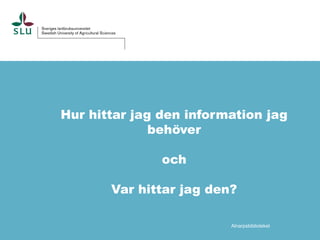
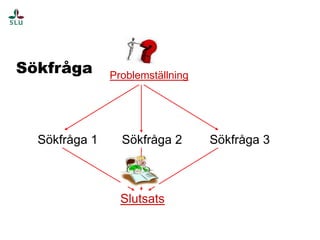
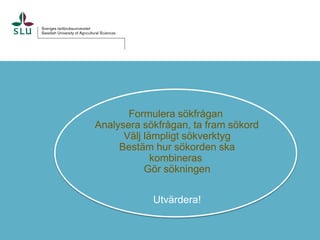
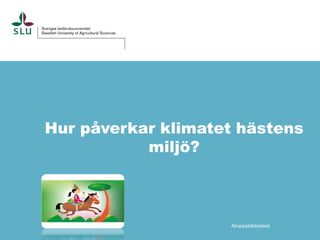
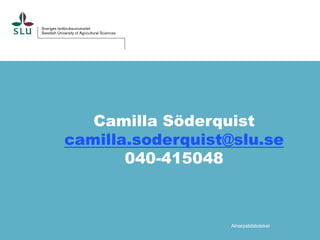
Ad
Recommended
D├żrf├Čr ska ni satsa p├ź sociala medier
D├żrf├Čr ska ni satsa p├ź sociala medierLinn├®a Sj├Čgren
╠²
Varf├Čr och hur man ska jobba med sociala medier. Hur man startar. Fallgropar. Effekter.Geometria moleculardianalove15
╠²
O documento discute a geometria molecular, especificamente a Teoria da Repuls├Żo dos Pares Eletr├┤nicos da Camada de Val├¬ncia (TRPECV). De acordo com a TRPECV, os pares eletr├┤nicos ligantes e n├Żo-ligantes ao redor do ├Ītomo central se repelem e tendem a ficar o mais afastados poss├Łvel, determinando a geometria molecular. O documento fornece exemplos de mol├®culas BH3 e NH3 e explica que a geometria de BH3 ├® trigonal planar enquanto a de NH3 ├® piramidal.Matchtech renewable energy capabilities (split)
Matchtech renewable energy capabilities (split)Fred Hall
╠²
Matchtech is the largest engineering recruitment firm in the UK specializing in renewable energy. They have extensive experience recruiting technical and engineering professionals for offshore wind, onshore wind, photovoltaic, biomass, marine, hydro, and other renewable energy sectors. Matchtech ensures clients receive high quality candidates through their industry expertise, large candidate database, and focus on attracting top talent.Content strategy for blogs
Content strategy for blogsalnarpsbiblioteket
╠²
This document provides tips for content strategy on blogs, including creating a mix of content types, using widgets to suggest related reading, doing post series, creating link bait, spreading content across multiple sites, and remembering that search engines like Google are important friends for driving traffic.Der Nobelpreis geht an: Vitamin CDr Rath
╠²
Vitamin C ist ein sehr bekanntes Vitamin, das viele Menschen aktiv konsumieren, sei es durch Orangensaft oder Nahrungserg├żnzungsmittel. Es erlangte Ber├╝hmtheit w├żhrend der Seefahrerzeit, als es entdeckt wurde, dass bestimmte Fr├╝chte vor Skorbut sch├╝tzen, was 1937 als wirksame Behandlung best├żtigt und mit einem Nobelpreis ausgezeichnet wurde. Der Artikel thematisiert die Bedeutung von vitamin C und wurde in 'Health & Medicine' ver├Čffentlicht.Geometria moleculardianalove15
╠²
O documento discute a geometria molecular e a Teoria da Repuls├Żo dos Pares Eletr├┤nicos da Camada de Val├¬ncia (TRPECV). Segundo a TRPECV, os pares eletr├┤nicos ligantes e n├Żo-ligantes ao redor do ├Ītomo central se repelem e tendem a ficar o mais afastados poss├Łvel, determinando a geometria molecular. A aplica├¦├Żo da TRPECV envolve contar os pares eletr├┤nicos e escolher a disposi├¦├Żo geom├®trica que os distribua de forma mais afastada.Oppdatert program for Tr*ffpunkt Mikromarc G├Ėteborg 2014
Oppdatert program for Tr*ffpunkt Mikromarc G├Ėteborg 2014vkp1970
╠²
Oppdatert program for Tr*ffpunkt Mikromarc G├Ėteborg 2014. Med kort informasjon om de ulike sesjonene og programmet sortert p├ź foredragsholderne.Biblioteket som socialt rum
Biblioteket som socialt rumPeter Alsbjer
╠²
F├Črel├żsning vid B/I-utbildningen vid Biblioteksh├Čgskoan i Bor├źs13 oktober 2015.
(Missa inte p├źsk├żggen eller bonusmaterialet!)Barnbibliotek i Kalmar l├żn Regionbibl Presentation 2010pmk
Barnbibliotek i Kalmar l├żn Regionbibl Presentation 2010pmkPia Malmberg-Kronvall
╠²
Om verksamhet vid barnbibliotek i Kalmar l├żnSA17
SA17ngbib
╠²
Presentation av infos├Čk, prim├żrk├żllor och bakgrundsinformation, i historia (rapportskrivning) 2020-01-14Stockholm 2012version2
Stockholm 2012version2Polhemskolan, Lund
╠²
Presentation av skolbiblioteksverksamheten p├ź Norra F├żladens skolomr├źde, Skolbibliotek 2012 i StockholmWebsupport for learning
Websupport for learningalnarpsbiblioteket
╠²
The document discusses web support for learning, including tools like learning management systems (LMS) and synchronous/asynchronous communication tools that can be used to support online courses. It mentions MOOCs (Massive Open Online Courses) and the importance of constructive alignment between intended learning outcomes, teaching/learning activities, and assessment. Finally, it lists some examples of learning tools and communication methods like room-based video, PC-based communication, and links to learning platforms like Fronter that can be used to support online learning.Pres jmsb
Pres jmsbalnarpsbiblioteket
╠²
This document outlines a PhD course on plant-microbe interactions exploring how beneficial microorganisms can support sustainable crop production. The 3-credit course will take place at Makerere University in Uganda in 2014 and be led by professors from Makerere and the Swedish University of Agricultural Sciences. The course will use seminars, lectures, practical laboratory and bioinformatics exercises, and a field trip to teach students how microbes can improve stress management in plants and avoid agrochemical use through mechanisms like priming, growth promotion, and induced systemic resistance. The learning goals are for students to understand plant-microbe interactions and develop strategies to apply beneficial microbes in their own projects.Intro
Introalnarpsbiblioteket
╠²
This document outlines plans for an innovative doctoral education program between SLU and Makerere University aimed at strengthening internationalization and transferable skills development. The program has three parts: 1) Joint development of transferable skill courses for doctoral students and workshops for senior staff. 2) Thematic subject courses integrated into research collaborations. 3) Teacher exchanges to support training in techniques and supervision. Core areas of focus include communication, research ethics, and integrating international perspectives. Plans are discussed to harmonize doctoral education between the universities through joint development, performance, and assessment of courses.Integrating the international dimension final
Integrating the international dimension finalalnarpsbiblioteket
╠²
This document discusses a workshop for teachers organizing thematic doctoral courses on integrating international dimensions into teaching and learning. The workshop aimed to help educators reflect on teaching in an internationalized classroom, discuss their role in different cultural contexts, and integrate a global perspective into course content. Key topics included acknowledging cultural biases, developing intercultural awareness, questioning assumptions about other cultures, and reflecting on one's own cultural identity and how it shapes their role as an educator. Suggested activities for doctoral courses included having students do reflective journals and coordinators checking in with each other by comparing journal entries and discussing pedagogical choices in a cultural context.Cross cutting courses - mak oct 2013
Cross cutting courses - mak oct 2013alnarpsbiblioteket
╠²
George Nasinyama presented on the case for cross-cutting courses in PhD programs at Makerere University. He explained that PhD programs were traditionally only research-based theses, but reforms introduced coursework components. However, students needed additional training in research skills. To address this, Makerere University developed cross-cutting courses focusing on research methodology, data analysis, scholarly writing, and other foundational skills. These courses have been well-received and provide PhD students a more well-rounded training to strengthen their qualifications and theses.20131017 course design
20131017 course designalnarpsbiblioteket
╠²
This document discusses course design in international partnerships. It emphasizes the importance of clearly defining the partnership through assessing needs, sharing visions and goals, and outlining roles and responsibilities. Constructive alignment is presented as a framework, where intended learning outcomes, teaching activities, and assessments are logically aligned. Examples of course objectives from PhD programs in Sweden and the University of Botswana emphasize developing knowledge and skills, intellectual independence, and contributing to society. The document stresses that effective course design in international partnerships requires understanding different educational systems and societies, as well as mutually beneficial collaboration.20131016 presentation upc
20131016 presentation upcalnarpsbiblioteket
╠²
The document summarizes activities at the Centre for Educational Development (UPC) related to innovative doctoral education for global food security. UPC offers courses, seminars, and workshops for teaching staff, doctoral students, and research supervisors. It is also involved in international projects in Vietnam and Africa. For the 2013-2014 year, UPC is offering courses on topics like teaching in higher education, supervising doctoral students, course design, and distance education. As part of its work on innovative doctoral education for global food security, UPC will provide courses and workshops on teaching and learning for PhD students, teaching staff, and research supervisors.O aworkshop 131017
O aworkshop 131017alnarpsbiblioteket
╠²
The document announces a workshop on sustainable infrastructure for scientific communication from global and local perspectives on open access. The workshop will discuss how open access initiatives are changing scholarly communication and the consequences for researchers and libraries. It will explore themes like open access and researchers' attitudes, open access and libraries' roles in supporting policies and repositories, and technical issues like metadata and infrastructure changes. The workshop will have two parts, with preliminary themes announced for discussion.Science intelligence and web tools for communication
Science intelligence and web tools for communicationalnarpsbiblioteket
╠²
This document discusses various science communication and collaboration tools for researchers, including:
- Academic blogs that allow researchers to share their work and connect with others in their field.
- Social networking sites like ResearchGate, Nature Network, and Academia.edu for networking and exchanging ideas.
- Social bookmarking sites like Delicious, CiteULike, and Mendeley that allow users to bookmark and share resources and find new materials through others' bookmarks.
- Creative Commons licenses that allow legal sharing and reuse of content with options for attribution, non-commercial use, derivatives, and sharing alike.
- Additional tools like RSS feeds, ║▌║▌▀ŻShare, Flickr, and Twitter to stay upSearch strategy
Search strategyalnarpsbiblioteket
╠²
1) The document outlines a search strategy to answer the question "What is the impact of green spaces on biodiversity in urban areas?".
2) It discusses using phrase searches, truncation, synonyms, Boolean operators like AND and OR, and refining searches by subject, year, language, and document type.
3) The search query proposed is "biodiversity AND urb* AND (ŌĆØgreen corridor*ŌĆØ OR ŌĆØgreen space*ŌĆØ)".Database Search Tips
Database Search Tipsalnarpsbiblioteket
╠²
This document provides tips for searching databases effectively. It demonstrates different search techniques like free text searches using keywords like "forest" or "forest*", title searches, descriptor searches, and combining search terms with Boolean operators like "OR". The examples show how each search technique retrieves different results and highlights the importance of testing various search strategies when exploring a database.Scholarly communication and OA
Scholarly communication and OAalnarpsbiblioteket
╠²
Scholarly communication refers to how academics find information, create knowledge, and share it with students and beyond academia. Traditionally, scholars would meet and correspond privately, but scholarly journals emerged as correspondence increased. Problems with the current system include commercial publishers controlling access and pricing out readers. Open Access aims to make scholarly works free online, either by publishing in an Open Access journal or self-archiving in an institutional repository. There are advocacy policies and mandates growing for Open Access worldwide to benefit research dissemination and public access to taxpayer-funded work.More Related Content
Similar to SLU biblioteket (8)
Barnbibliotek i Kalmar l├żn Regionbibl Presentation 2010pmk
Barnbibliotek i Kalmar l├żn Regionbibl Presentation 2010pmkPia Malmberg-Kronvall
╠²
Om verksamhet vid barnbibliotek i Kalmar l├żnSA17
SA17ngbib
╠²
Presentation av infos├Čk, prim├żrk├żllor och bakgrundsinformation, i historia (rapportskrivning) 2020-01-14Stockholm 2012version2
Stockholm 2012version2Polhemskolan, Lund
╠²
Presentation av skolbiblioteksverksamheten p├ź Norra F├żladens skolomr├źde, Skolbibliotek 2012 i StockholmMore from alnarpsbiblioteket (12)
Websupport for learning
Websupport for learningalnarpsbiblioteket
╠²
The document discusses web support for learning, including tools like learning management systems (LMS) and synchronous/asynchronous communication tools that can be used to support online courses. It mentions MOOCs (Massive Open Online Courses) and the importance of constructive alignment between intended learning outcomes, teaching/learning activities, and assessment. Finally, it lists some examples of learning tools and communication methods like room-based video, PC-based communication, and links to learning platforms like Fronter that can be used to support online learning.Pres jmsb
Pres jmsbalnarpsbiblioteket
╠²
This document outlines a PhD course on plant-microbe interactions exploring how beneficial microorganisms can support sustainable crop production. The 3-credit course will take place at Makerere University in Uganda in 2014 and be led by professors from Makerere and the Swedish University of Agricultural Sciences. The course will use seminars, lectures, practical laboratory and bioinformatics exercises, and a field trip to teach students how microbes can improve stress management in plants and avoid agrochemical use through mechanisms like priming, growth promotion, and induced systemic resistance. The learning goals are for students to understand plant-microbe interactions and develop strategies to apply beneficial microbes in their own projects.Intro
Introalnarpsbiblioteket
╠²
This document outlines plans for an innovative doctoral education program between SLU and Makerere University aimed at strengthening internationalization and transferable skills development. The program has three parts: 1) Joint development of transferable skill courses for doctoral students and workshops for senior staff. 2) Thematic subject courses integrated into research collaborations. 3) Teacher exchanges to support training in techniques and supervision. Core areas of focus include communication, research ethics, and integrating international perspectives. Plans are discussed to harmonize doctoral education between the universities through joint development, performance, and assessment of courses.Integrating the international dimension final
Integrating the international dimension finalalnarpsbiblioteket
╠²
This document discusses a workshop for teachers organizing thematic doctoral courses on integrating international dimensions into teaching and learning. The workshop aimed to help educators reflect on teaching in an internationalized classroom, discuss their role in different cultural contexts, and integrate a global perspective into course content. Key topics included acknowledging cultural biases, developing intercultural awareness, questioning assumptions about other cultures, and reflecting on one's own cultural identity and how it shapes their role as an educator. Suggested activities for doctoral courses included having students do reflective journals and coordinators checking in with each other by comparing journal entries and discussing pedagogical choices in a cultural context.Cross cutting courses - mak oct 2013
Cross cutting courses - mak oct 2013alnarpsbiblioteket
╠²
George Nasinyama presented on the case for cross-cutting courses in PhD programs at Makerere University. He explained that PhD programs were traditionally only research-based theses, but reforms introduced coursework components. However, students needed additional training in research skills. To address this, Makerere University developed cross-cutting courses focusing on research methodology, data analysis, scholarly writing, and other foundational skills. These courses have been well-received and provide PhD students a more well-rounded training to strengthen their qualifications and theses.20131017 course design
20131017 course designalnarpsbiblioteket
╠²
This document discusses course design in international partnerships. It emphasizes the importance of clearly defining the partnership through assessing needs, sharing visions and goals, and outlining roles and responsibilities. Constructive alignment is presented as a framework, where intended learning outcomes, teaching activities, and assessments are logically aligned. Examples of course objectives from PhD programs in Sweden and the University of Botswana emphasize developing knowledge and skills, intellectual independence, and contributing to society. The document stresses that effective course design in international partnerships requires understanding different educational systems and societies, as well as mutually beneficial collaboration.20131016 presentation upc
20131016 presentation upcalnarpsbiblioteket
╠²
The document summarizes activities at the Centre for Educational Development (UPC) related to innovative doctoral education for global food security. UPC offers courses, seminars, and workshops for teaching staff, doctoral students, and research supervisors. It is also involved in international projects in Vietnam and Africa. For the 2013-2014 year, UPC is offering courses on topics like teaching in higher education, supervising doctoral students, course design, and distance education. As part of its work on innovative doctoral education for global food security, UPC will provide courses and workshops on teaching and learning for PhD students, teaching staff, and research supervisors.O aworkshop 131017
O aworkshop 131017alnarpsbiblioteket
╠²
The document announces a workshop on sustainable infrastructure for scientific communication from global and local perspectives on open access. The workshop will discuss how open access initiatives are changing scholarly communication and the consequences for researchers and libraries. It will explore themes like open access and researchers' attitudes, open access and libraries' roles in supporting policies and repositories, and technical issues like metadata and infrastructure changes. The workshop will have two parts, with preliminary themes announced for discussion.Science intelligence and web tools for communication
Science intelligence and web tools for communicationalnarpsbiblioteket
╠²
This document discusses various science communication and collaboration tools for researchers, including:
- Academic blogs that allow researchers to share their work and connect with others in their field.
- Social networking sites like ResearchGate, Nature Network, and Academia.edu for networking and exchanging ideas.
- Social bookmarking sites like Delicious, CiteULike, and Mendeley that allow users to bookmark and share resources and find new materials through others' bookmarks.
- Creative Commons licenses that allow legal sharing and reuse of content with options for attribution, non-commercial use, derivatives, and sharing alike.
- Additional tools like RSS feeds, ║▌║▌▀ŻShare, Flickr, and Twitter to stay upSearch strategy
Search strategyalnarpsbiblioteket
╠²
1) The document outlines a search strategy to answer the question "What is the impact of green spaces on biodiversity in urban areas?".
2) It discusses using phrase searches, truncation, synonyms, Boolean operators like AND and OR, and refining searches by subject, year, language, and document type.
3) The search query proposed is "biodiversity AND urb* AND (ŌĆØgreen corridor*ŌĆØ OR ŌĆØgreen space*ŌĆØ)".Database Search Tips
Database Search Tipsalnarpsbiblioteket
╠²
This document provides tips for searching databases effectively. It demonstrates different search techniques like free text searches using keywords like "forest" or "forest*", title searches, descriptor searches, and combining search terms with Boolean operators like "OR". The examples show how each search technique retrieves different results and highlights the importance of testing various search strategies when exploring a database.Scholarly communication and OA
Scholarly communication and OAalnarpsbiblioteket
╠²
Scholarly communication refers to how academics find information, create knowledge, and share it with students and beyond academia. Traditionally, scholars would meet and correspond privately, but scholarly journals emerged as correspondence increased. Problems with the current system include commercial publishers controlling access and pricing out readers. Open Access aims to make scholarly works free online, either by publishing in an Open Access journal or self-archiving in an institutional repository. There are advocacy policies and mandates growing for Open Access worldwide to benefit research dissemination and public access to taxpayer-funded work.Ad
SLU biblioteket
- 2. V├żlkommen till v├źra kvalifikationer Elektroniska och traditionella resurser Kreativ studiemilj├Č Alnarpsbiblioteket
- 3. SLUBs hemsida B├Čcker Tidskrifter Elektroniska biblioteket 24/7 Alnarpsbiblioteket
- 6. Hur hittar jag den information jag beh├Čver och Var hittar jag den? Alnarpsbiblioteket
- 8. Formulera s├Čkfr├źgan Analysera s├Čkfr├źgan, ta fram s├Čkord V├żlj l├żmpligt s├Čkverktyg Best├żm hur s├Čkorden ska kombineras G├Čr s├Čkningen Utv├żrdera!
- 9. Hur p├źverkar klimatet h├żstens milj├Č? Alnarpsbiblioteket